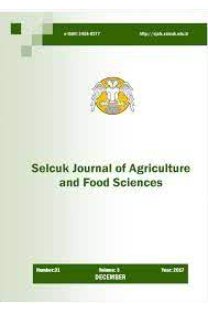The Effects of Ortho Silicone Applications on the Acclimatization Process of Grapevine Rootstocks
The Effects of Ortho Silicone Applications on the Acclimatization Process of Grapevine Rootstocks
Micropropagation is a tool for large-scale reproduction of planting material for viticulture sustainability. Successful micropropagation depends on the continued productivity of plantlets during the acclimatization phase. Due to high humidity in the culture container and free water in the environment, it causes rapid water loss and drying of plantlets with watery stems and leaves, poorly developed cuticle, large intercellular space, and incomplete stomata. Acclimatization of in vitro grown plantlets is often difficult. Silicon is gaining in importance as a useful tool in coping with multiple stress factors in different plant species, due to its contribution to the formation of the cuticle of plants, its mechanical resistance to biotic and abiotic stress, and its contribution to the flow of water through stomata and plant surfaces. In this study, the effects of 500 and 1000 µL ortho silicon applications at the acclimatization stage on in vitro propagated plantlets of 41B, 110R and Fercal grapevine rootstocks were evaluated by examining their survival rates. In the in vitro propagation process, rooting rates were listed as Fercal (64%) and 110R (32%) and 41B (28%) according to rootstocks, while root numbers were listed as Fercal (11.8), 41B (8.5), 110R (3.6). Genotypic differences were determined in the effects of silicon on plantlets in the acclimation process. In 110R and Fercal control plantlets, all plantlets were lost during acclimatization. Of the plantlets treated with 1000 µL SiO2, 110R 66% Fercal 88% and in 41B, the control, 500 and 1000 µL SiO2 applied plantlets survived 100%, 66% and 66%, respectively. 1000 µL SiO2 dose was more effective on survival rates than 500 µL applications. In subsequent studies, it was found that 1000 µL SiO2 applications could be used for practical success in grapevine genotypes that
had problems in acclimatization and in other in vitro propagation studies.
